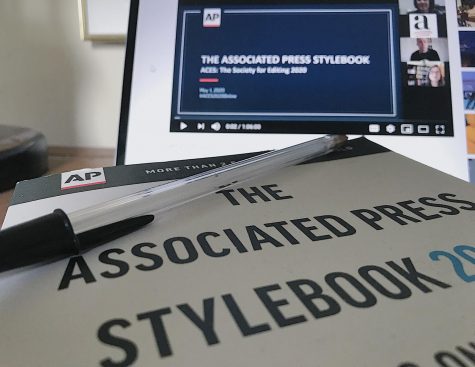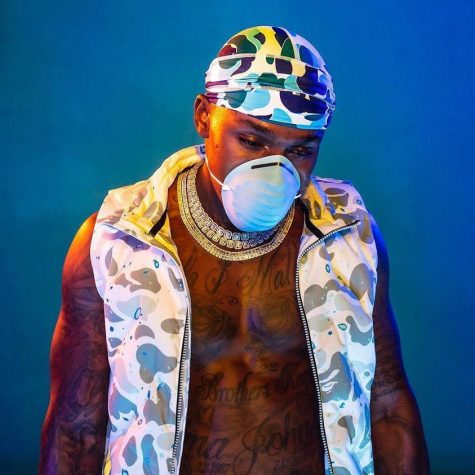No Justice for Mercury or Queen in Bohemian Rhapsody
Rami Malek has garnered critical acclaim for his portrayal of Queen front man Freddie Mercury in Bohemian Rhapsody. (Courtesy of Facebook)
November 7, 2018
By Matt Dillon
Bohemian Rhapsody is a dramatization of Freddy Mercury’s time with Queen, and features Rami Malek starring as the iconic lead singer.
The film fails to capture the magnetic, unique energy of the legendary band. Malek gives a convincing performance, but Freddie Mercury dominates so much of the running time that the film does not quite feel complete.
His band, bosses and even his relationships are depicted only as extensions of himself, giving the film an overly narrow perspective of such a complex figure.
In one of Rhapsody’s more important scenes, Freddie Mercury remarks that he’s trying to make it through the “in-between moments. Ironically, the film could have used a little more emphasis on that point.
The film more or less presents the band’s entire history, though the film feels too much like a highlight reel to be comprehensive or believable. The film ends up skipping vast swathes of time, including a number of important events. While they make a point to show that Queen was far from a one-man operation, Freddie Mercury still takes prominence over nearly everything else. This would not be an issue if his characterization was a little more substantial.
Rhapsody gets so caught up in the spectacle of Freddie Mercury’s public persona and private life that it rarely remembers the human being underneath it all. Particularly glaring is the handling of his sexuality. Until the very end of the film, his bisexuality is presented solely as a threat to his marriage or a gateway to self-destruction. The film would have benefited from a more thoughtful and less lurid approach in that regard.
The core issue with Rhapsody is that the film plays it too safe for such a revolutionary band. The film is largely a standard nostalgic band-makes-it-big narrative. Queen’s story has a lot of potential for a feature film but this movie lacks the inspiration to use it properly. Even its most “experimental” shots are pretty dull or marred by clumsy special effects.
A few scenes do enough with its story and visual cues to capture the unique energy of Queen and Freddie Mercury. But everything else relies purely on nostalgia or tried and true genre tropes. The films ends with a partial recreation of the band’s famous Live Aid performance. While it’s decently similar and they try to add something to it, trying to reproduce such an important moment in music history is beyond Rhapsody’s abilities.
Unsurprisingly, the entirety of the film’s music is dubbed over. It is surprisingly clumsy in certain scenes, but acceptable in others.
Aside from emulating Freddie Mercury, Malek does not make the transition between his normal voice and his singing voice added in post-production believable.
Rhapsody is not a bad film, but it fails to adequately capture the history of a group as important as Queen. The film loves to point out that the band made a name for itself by going where others would not and expressing a willingness to experiment while keeping quality in mind. This movie could have learned something from that.










If you want a picture to show with your comment, go get a gravatar.